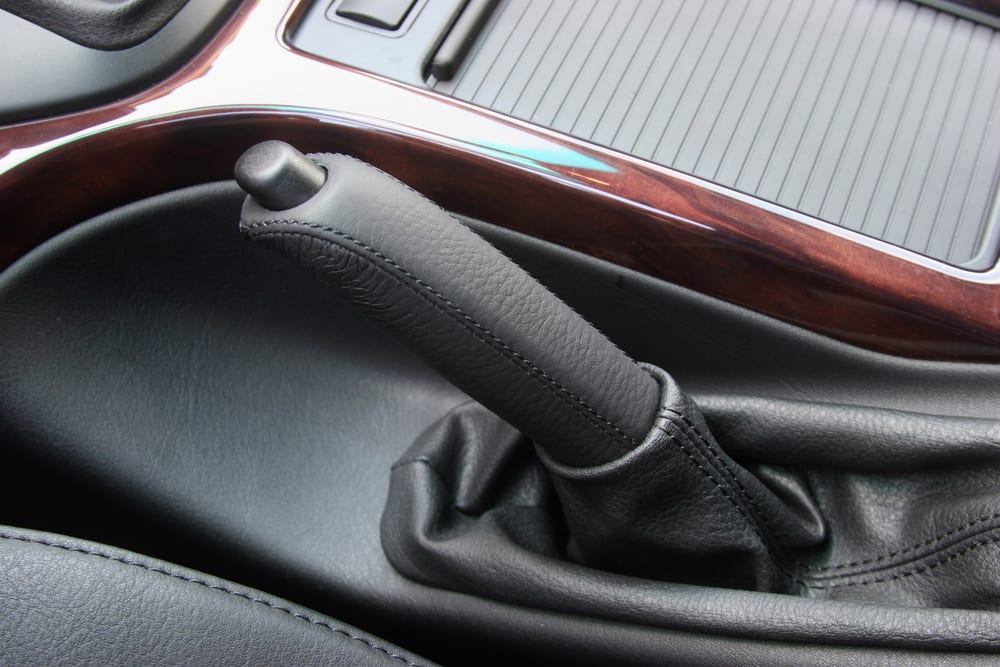

As a safety feature, all road going cars and trucks are equipped with some sort of emergency / parking brake system for parking and manual braking in emergency situations. The emergency brake is meant to only be used as a means to stop the car if the vehicle’s primary braking system fails. In the event of some sort of hydraulic or electronic brake failure that disables the main brakes, the vehicle can still be stopped using the emergency brakes. Emergency brakes also double as an additional safety method to secure the vehicle when parked.
Most emergency brakes are controlled by a simple handle or lever mechanism that engages the emergency brakes when set. The handle or pedal is connected to switches that will detect if it is set or not. It is also connected to a steel braided cable that will set the emergency brakes when it is pulled. As the emergency brake control mechanism is the direct means for activating the emergency brake, when it has any issues, it can cause problems with the functionality of the emergency and parking brake. Usually a problematic emergency brake control mechanism will produce a few symptoms that can alert the driver of a potential issue that should be serviced.
1. Emergency / Parking brake does not properly engage
One of the first symptoms of a problem with the emergency brake control mechanism is a parking brake that does not properly engage. If there is any problem with the parking brake handle or lever, it may cause the emergency brake to not function correctly. This may cause difficulty when parking on inclines, and will leave the vehicle without a suitable brake in emergency situations.
2. Emergency / Parking brake does not disengage
Another symptom of a bad or failing emergency brake mechanism is a parking brake that does not disengage, or one that does not disengage properly. If the parking brake pedal or lever jams, or has any issue, it can cause problems disengaging the parking brake. This is a problem, as driving with a parking brake engaged can cause the brakes to overheat and sustain damage.
3. No resistance at parking brake pedal or lever
Another symptom of a problem with the emergency brake control mechanism is no resistance at the pedal or lever. If the lever or pedal breaks, this may cause zero resistance at the pedal. This can also be caused by a defective parking brake cable, so having the pedal checked is highly recommended.
Emergency brakes are an important feature that is mandatory on all vehicles, and any problem with the control mechanism can leave the vehicle without this emergency feature. If you suspect that your emergency brake control mechanism may be having an issue, have the vehicle inspected by a professional technician, such as one from YourMechanic. They will be able to look at the system and replace your emergency brake control if necessary.



